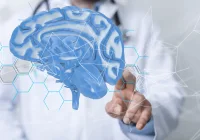The integration of artificial intelligence into electronic health records (EHR) is transforming healthcare by improving workflow, clinical decision support and patient care. Despite the accelerated adoption of AI, challenges remain, often due to misaligned organisational priorities rather than technological issues. Many healthcare providers invest in AI without adapting their clinical workflows. Successful integration requires aligning AI solutions with operational needs to enhance EHR investments.
Nearly 90% of healthcare executives consider digital transformation a top priority, yet many organisations face inadequate planning, limited resources and resistance to change. The potential cost savings from AI in healthcare could reach up to €330 billion ($360 billion) industry-wide. Early adopters are increasing their AI investments, recognising that long-term benefits can outweigh initial challenges. The growing volume of patient data highlights the need for AI-driven modernisation in healthcare.
Optimising Processes and Reducing Errors
AI in EHR systems is transforming administrative processes, minimising human error and enhancing workflow efficiency. Automating routine tasks such as medical coding, appointment scheduling and insurance verification significantly reduces documentation burdens on clinicians, freeing up valuable time for patient care. Research suggests that AI-powered automation reduces the average time spent on documentation by six hours per week per clinician. This efficiency gain directly impacts clinical productivity and patient interaction time, improving overall care quality.
Moreover, AI-driven algorithms actively identify and flag inconsistencies in patient data, mitigating the risks of incorrect billing, duplicated records and medication errors. By integrating predictive tools, AI can assist in prioritising urgent cases, ensuring that resources are allocated effectively based on clinical urgency. These capabilities improve operational effectiveness by streamlining workflows and enhancing decision-making, ultimately leading to a more sustainable and efficient healthcare system.
Recommended Read: MedTech in 2025: Main Trends Reshaping the Industry
AI also addresses interoperability challenges, a major obstacle in EHR modernisation. Many healthcare providers operate a mix of legacy and modern systems, leading to fragmented data silos. AI enhances interoperability by standardising data formats and facilitating seamless data exchange across different systems. As a result, healthcare professionals can access complete and up-to-date patient records, reducing administrative bottlenecks and improving coordinated care efforts.
Enhancing Clinical Decision Support
AI-powered EHR systems are revolutionising the way clinicians interact with patient data, transforming static records into dynamic insights that support real-time decision-making. Machine learning algorithms analyse vast amounts of patient data, flagging abnormalities in lab results and correlating findings with historical data to suggest potential diagnoses. This level of analysis reduces diagnostic errors, enabling clinicians to make more informed treatment decisions.
Clinical decision support systems (CDSS) leverage AI to extract relevant information from physician notes using natural language processing (NLP). This functionality allows clinicians to receive real-time treatment recommendations based on medical guidelines and historical patient data. Additionally, AI alerts healthcare providers to critical updates, such as changes in medication protocols or potential drug interactions, reducing the risk of adverse effects and improving patient safety.
Beyond diagnosis and treatment recommendations, AI is being used to predict complications before they arise. By analysing longitudinal patient data, AI systems can forecast risks such as disease progression, potential hospital readmissions and adverse drug interactions. These predictive insights enable healthcare providers to take pre-emptive measures, improving patient outcomes and reducing the overall burden on healthcare facilities.
Advancing Patient-Centred Care
AI in EHR is driving a shift towards personalised and proactive patient care. AI-powered tools facilitate the creation of customised care plans based on each patient’s medical history, lifestyle and specific needs. These systems analyse large datasets to identify patterns that help guide clinicians in making tailored treatment recommendations.
Medication tracking systems play a crucial role in ensuring patient adherence to prescribed treatments. AI-driven alerts notify clinicians and patients of missed doses or potential adverse drug reactions, allowing timely interventions. Additionally, predictive algorithms assess a patient’s medication history to forecast possible complications, ensuring that necessary adjustments are made to enhance safety and treatment efficacy.
The integration of AI with telehealth solutions is further improving accessibility and quality of care. Telehealth platforms benefit from AI-driven real-time insights, allowing healthcare providers to make more informed decisions during virtual consultations. AI automates documentation processes, reducing the time spent on administrative tasks and ensuring accurate record-keeping. This integration is particularly valuable in remote and underserved areas, bridging the gap between patients and healthcare services.
Conversational AI tools are also enhancing patient engagement by providing virtual assistance for appointment scheduling, medication reminders and general health inquiries. These systems empower patients to take control of their health, increasing compliance and fostering a more interactive approach to healthcare. By combining AI with EHR, healthcare organisations can create a more personalised, efficient and patient-focused experience.
AI is redefining the role of EHR, transforming them from passive data repositories into intelligent systems that optimise workflow efficiency, enhance clinical decision-making and improve patient engagement. However, the implementation of AI-driven EHR systems is not without challenges. High costs, interoperability issues and resistance to change remain significant barriers to adoption. Nevertheless, by adopting a strategic approach that aligns AI solutions with organisational priorities, healthcare providers can maximise the benefits of AI integration.
AI’s role in EHR will become increasingly critical in shaping a more data-driven and patient-centric healthcare system. Organisations that invest in AI-powered EHR solutions today are positioning themselves for long-term success, ensuring better healthcare outcomes, streamlined operations and more efficient resource allocation. By overcoming implementation challenges and leveraging AI’s capabilities effectively, the future of EHR will be characterised by enhanced decision-making, improved patient experiences and a more connected healthcare ecosystem.
Source: Topflight
Image Credit: iStock










